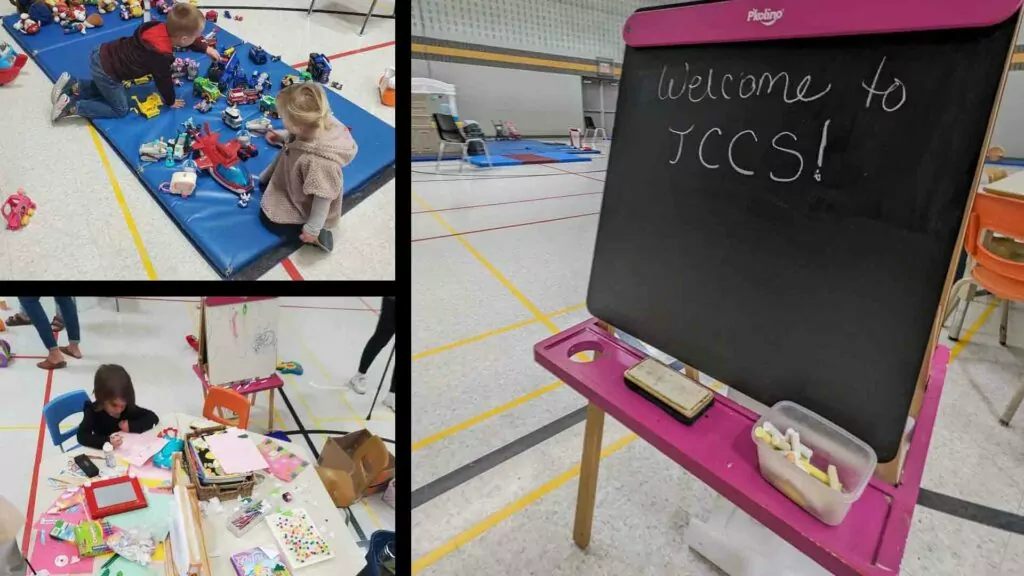Idol-making hearts plug up ears
*****
It will not come as a shock that in Christian schools too, students will be inattentive. Teachers, coaches, pastors, volunteers, and community instructors notice and experience that some students are quick to interrupt and slow to listen and pay attention. As the instruction begins, it does not take long before a student has turned to their neighbor to have their own private conversation. One such conversation quickly becomes two, and before you know it, the instructor has to call a whole group of students back to attention
Now, as teachers learn through experience, you often “get what you put up with.” So teachers have the responsibility to be clear with their classroom expectations and have the fortitude to follow through with consequences that have been clearly outlined before instruction has even taken place. Teachers need to demonstrate patience and the like, but they also need to consistently apply discipline to ensure that every student has the most conducive environment to learn in. In other words, teachers need to make sure that one segment of the student population does not “get away with” dragging the whole learning environment down.
That’s what the teacher can do.
But what of the student?
I’d like to draw your attention to an issue that would be helpful to discuss around our dinner tables and with our children individually. And not so much as a once-off topic of discussion, but more as an ongoing conversation, similar to the common reminder that we all grew up with from mom and dad: “Did you remember to say thank-you?” This issue at its root, when you dig down into the human heart, has to do with idolatry manifesting itself as disrespectful behavior towards adults. It has to do with what heart attitude our children bring to the classroom, gym, workshop, catechism room, and the like. Allow me to explain.
Listen my son…
In the book of Proverbs, Solomon repeatedly reminds his son to listen, such as in chapter 4:1: “Listen, my son, to a father’s instruction; pay attention and gain understanding” (see also Prov. 1:8, 4:10, etc.). He urges listening because He knows that God uses parents, and other authority figures, in the lives of children to point them to know Christ. Children learn God’s ways through their parents, and through the other Christian adults that He places into their lives.
Solomon is also aware that children (and adults too!) have little idol factories going on in their hearts. Their inclination is to be king on their own little thrones and prone to thinking that their short life experiences teach them enough to make up their own mind on how things should go. I am my own boss; I choose when I get to speak and I’ll choose when I wish to be quiet and listen. I serve myself and my own needs…rather than God and the authority figures God has placed in my life.
Now, maybe that seems to be going too deep. Our children are not likely to say, “Oh yes, my speaking out of turn or interrupting my adult instructor… yep, that’s clearly idolatry. I should stop setting up myself as the little god in my life.”
Nevertheless, the Bible is clear; that’s what’s happening. And that’s where we, as parents, need to go when our children demonstrate a lack of respect for their adult instructors. Otherwise, we just end up putting a Band-Aid on the “sore.” Going to the “heart of the matter” is the only way to bring lasting change.
Big impact, for good or ill
I would also add this thought: as our children get older, they end up in learning situations that go beyond the regular school classroom. In our communities we “leverage” adults who are not qualified teachers. These include coaches, bakers, artists, woodworkers, driving instructors, 4H leaders, horticulturalists, runners, bosses…you name it. When you add up the number of adults that are instructing our youth from middle school onwards, the list is actually quite long.
How much more reason to train our children that interrupting adult instructors by blurting, having our own private conversations, rolling the eyes, a disparaging look, a bored countenance, etc., is not only unacceptable as a child of the Lord but it also becomes very wearisome on those that are doing the teaching, who, in many cases, are giving their time as a gift to the school. Any experienced teacher will tell you that having students that lack the self-control to actively listen to 5-10 minutes of instruction can really drag down the learning environment and also leads to distracting the attention of others.
Getting the conversations started
So, is this issue something new? No, not really. Wherever you have a group of excited students together, the inclination and temptation to be distracted is always there. At the same time, I think this issue probably sits in our parental “blind spot” at times and I do think it needs our attention.
Regular conversation and a checking in with our children can make a big difference for all the instructors that show up in our children’s lives. We can ask them a question like:
- “How was your focus and attention in class today?”
- “What strategies are you using to eliminate distractions?”
- “Are you standing or sitting away from friends that you know will lead you to disrupt the class”?
- “Do you take the time to apologize to your teacher when you are disciplined for disrupting classroom instruction (or for any other misbehavior for that matter)?”
- “Do you show respect to the adults (and peers) in your life with your words, body language, and written communications?”
This is worth making a regular topic of conversation at home, and not so that our kids can be “good kids.” What we really want is to help them learn to think Christianly about their attitude towards authority, and in particular, how they listen to instruction.












